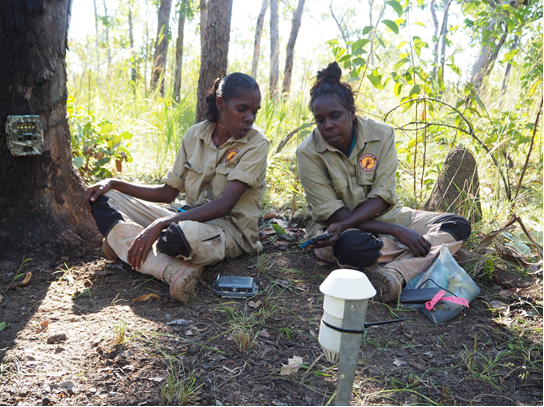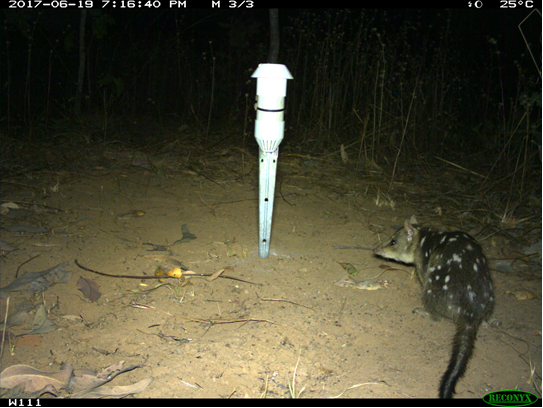Community stories: 5 July 2021
Warddeken, an Aboriginal owned not-for-profit company, combines traditional ecological knowledge with Western science to manage and protect one of Australia’s most unique environments.

Arnhem Land covers 97,000 sq km of the top end of the Northern Territory.
During the second half of the twentieth century, many Traditional Owners were encouraged to move away from either remote parts of Arnhem Land and join missions, or larger communities to search for more ‘traditional’ work opportunities.
As a result, many parts of the area were left without people and ‘Country was orphaned’ – the term used for land without its people.
Over a number of decades fine-scale fire management was replaced by raging yearly wildfires, feral animals and invasive plants severely impacting the native species.
The plants and animals that make up the local ecosystems had previously evolved to rely on Bininj (the Aboriginal people of Western Arnhem Land), however the disruption in traditional Indigenous land management diminished the ecosystem and led to plummeting numbers of small to medium–weight mammals. This included culturally important species like djabbo / northern quoll and bakkadji / black-footed tree-rat. Refugia, including rainforest patches shrunk and fresh-water places were destroyed.
Getting things back on track
Warddeken is an Aboriginal-owned, not-for-profit company that combines traditional ecological knowledge with Western science to manage and protect one of Australia’s most unique environments.
Warddeken operates out of the remote homeland communities of Kabulwarnamyo, Manmoyi and Mamadawerre in west Arnhem Land. Each year up to 180 Indigenous rangers work on a variety of projects including fire management and carbon abatement, invasive weed and feral animal control, rock art conservation, education and cultural heritage management.
In 2010 Aboriginal Elders from the Warddeken and Djelk IPAs established the Karrkad-Kanjdji Trust to seek philanthropic sources of funding for land management and cultural projects.
Last year, they received a $15,000 Seeds of Renewal grant from ANZ and FRRR to help fund a network of cameras that look into the prevalence of djabbo (northern quoll) on the land to understand the impact of its own land management practices and programs on this priority mammal species.

Curbing the decline
Djabbo populations identified by the monitoring project are actively considered in annual early burning and wildfire suppression activities, and are targeted for further investigation for the purposes of building population resilience.
With meaningful involvement and employment of landowners and rangers, Warddeken will seek to define quoll and major predator feral cat population density and distribution to inform the design of predator suppression strategies if required.
Indigenous rangers, living and working on Country, are best placed to curb the decline in native biodiversity loss and improve habitat for future generations.
Rangers in West and Central Arnhem Land tirelessly blend Indigenous ecological knowledge and western science to control threats and help native species begin to thrive in their natural environment.
CEO of Karrkad Kanjdji Trust, Stacey Irving says “Warddeken’s vision is to have healthy people living and working on healthy country. The generous support of the ANZ Seeds of Renewal program is helping rangers care for species like the Djabbo.’’
Terrah Guymala, Senior Warddeken Ranger adds, “When we, Bininj people, see animals, we get excited because they play a big role in our life through our ceremonies.
“This year we have seen lots of animals that we love, but we hope this number increases so we can physically show our children rather than relying on rock art to tell the stories,” Terrah says.
ANZ General Manager Business Banking Jenefer Stewart says the ANZ Seeds of Renewal program has been providing grants for important initiatives in regional and rural Australia for nearly 20 years.
“Each year I look forward to seeing the difference the grants are able to make in these communities, many of which find it difficult to access the resources they need to grow, develop and prosper,” she says.
Written by Karly Dwyer, ANZ

